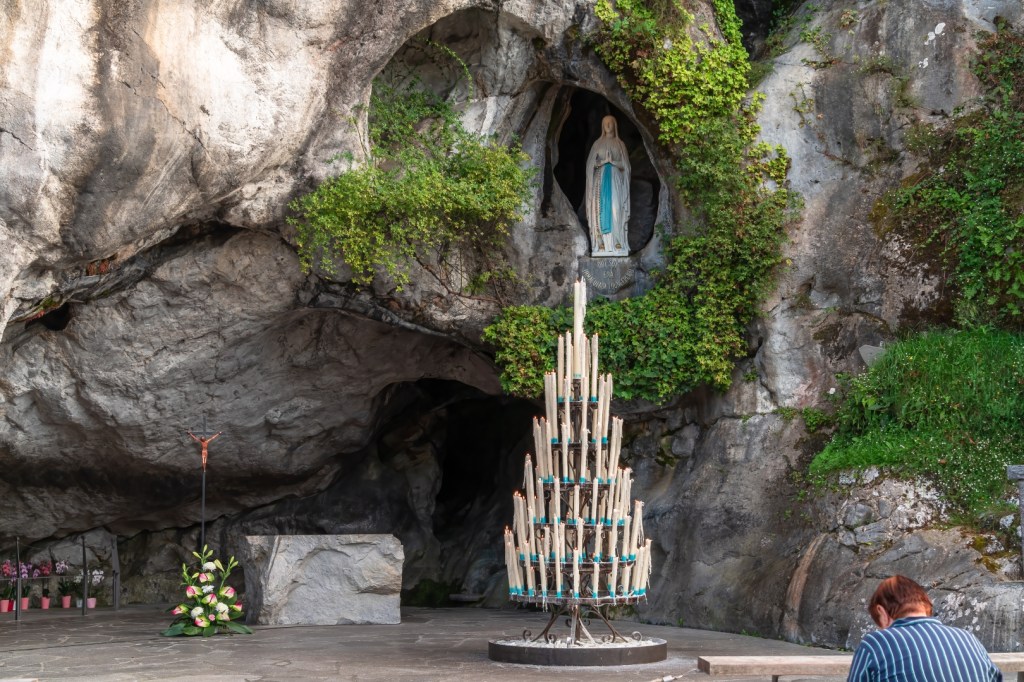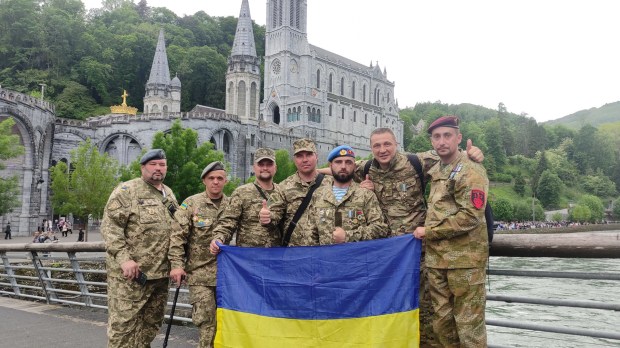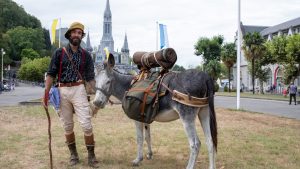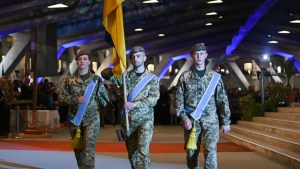Oleksandr Shvetsov, a Ukrainian soldier, lost a leg at the front in the Donbass in 2014. He plunged into substance abuse and despair. Yet it was in Lourdes that he found peace. “In Lourdes, I came out of the abyss of war,” he Aleteia.
Today, the 38-year-old Ukrainian veteran organizes pilgrimages for maimed soldiers, as well as para-marathons during which he raises funds to support Ukrainian hospitals that help victims of the war.
“I’ve always been a believer, but I recognize that I’m not an example,” says the soldier. He didn’t get into the trenches during the last nineteen months of the full-scale war, but in 2014, when Russian aggression began, which many no longer remember.
Oleksandr admits that he enlisted in the army somewhat by chance. On his way to pick up paperwork certifying his right to enlarge his parents’ house, he came across a recruiting unit in the same building. “I met guys who were ready to fight for their country. At the time, I wasn’t thinking about joining up, but one of the officers asked me if I wanted to become a soldier too. Listening to their motivations, I couldn’t refuse,” recalls the veteran.
Unable to deal with his injuries
After several months of training, Oleksandr joined the 39th Mechanized Brigade. “Over time, we were sent to the front line around Lugansk. Before we could reinforce our positions, a Russian attack began. I felt something fly past me, and after a while I realized I couldn’t stand up,” he recalls.
Oleksandr was then evacuated by helicopter to a hospital in Kharkiv. “I saw many injured colleagues, but it was only later that I realized my leg had been amputated,” he says. The mental wounds proved deeper than the physical ones. For many months, he refused rehabilitation and the fitting of a prosthesis.
Mental and spiritual healing at Lourdes
“I didn’t accept what had happened to my life. I started drinking, then I started taking amphetamines. I thought it would help me mentally, but it was an illusion,” he admits. As he sank deeper and deeper into despair, he was offered a trip to Lourdes. “I used to suffer from terrible headaches. They disappeared after a dip in the pools at the shrine, and my anxiety also vanished,” he says.

He confesses to being too pragmatic to call it a miracle, but he says that deep down he wished his fellow veterans could experience something similar — an experience that would put them on their feet and restore meaning to life. Thus was born the idea of pilgrimages not only to the shrine at the foot of the Pyrenees, but also to other important religious sites.
The Hero Bus
The project took the name “Hero Bus” because Oleksandr was given a run-down bus with eighteen seats. However, he didn’t have enough funds to organize the first pilgrimage to Lourdes for the maimed soldiers. “I put a post on FB and immediately found a man who agreed to pay for everything,” he says. He recalls being surprised by such a quick turn of events.
Thanks to the support he has received, Oleksandr has taken veterans to the Shrine of Divine Mercy in Krakow-Łagiewniki, where Saint Faustina lived and received apparitions of Christ, as well as to the Holy Land, and even to the Vatican, where the group met Pope Francis.
The “Samaritan of maimed soldiers”
Today, the people Oleksandr helped call him the Samaritan of maimed soldiers. Many veterans have managed to emerge from the tunnel of alcoholism and post-traumatic stress, although after the Russian invasion of Ukraine, some of them re-enlisted.
The pilgrimages and hikes set up by Oleksandr have meanwhile acquired a high profile on social networks. “I started using social networks to raise funds and help hospitals. For example, we have organized para-marathons for soldiers who have had limbs amputated,” explains Oleksandr. Together with a friend who lost a leg and an arm during the war, they ran 75 miles, raising enough money to buy an endoscope for a Kiev hospital.
Stressing the extent to which Lourdes has given him renewed hope, Oleksandr explains that he wants more than ever to give it back to the war-wounded and all the victims of this conflict. “I can’t wait to see smiling children playing in parks again, without suffering this inhuman fear that bombs are about to fall on them.”



